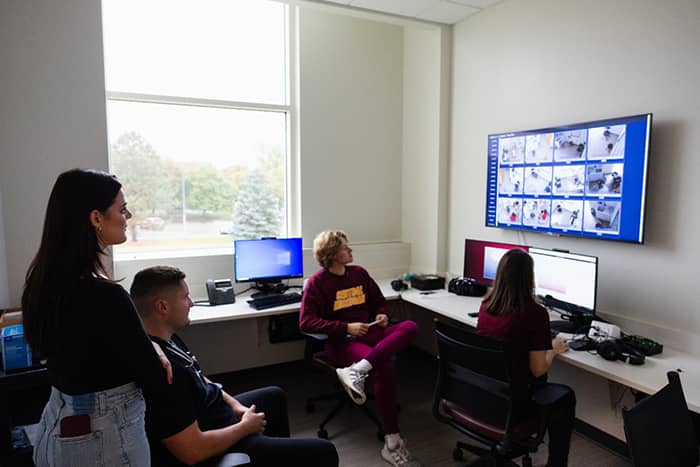IPEP Simulation
Healthcare simulation offers students a safe, controlled environment to apply classroom knowledge and develop the critical thinking skills essential for real-world clinical practice. At the Interprofessional Education and Practice (IPEP) Center, a variety of resources are used to meet diverse learning objectives, including standardized patients, high-fidelity simulators, and hybrid simulations.
The IPEP Center serves all College of Health Professions departments and collaborates with the College of Medicine (CMED) for specific simulations, creating an interprofessional environment where you can practice teamwork and communication. This collaborative approach enhances your preparedness for the complexities of healthcare practice.



Simulation allows you to receive immediate feedback in a safe, controlled environment, fostering continuous improvement without the risk of harm to patients. This approach builds your confidence by allowing you to refine your skills and decision-making abilities through repeated practice. Additionally, simulation enhances readiness for real-world clinical practice by exposing you to diverse scenarios, including rare or high-risk situations you may not encounter during traditional clinical rotations.
Examples of simulation encounters include:
- History and physical.
- Escape room.
- Skills practice.
- Delivering difficult news.
- Clinical hours replacement.
- Interprofessional.
Through structured debriefing sessions, you gain insights into your performance, learn to recognize and address mistakes, and develop critical thinking and problem-solving skills. Furthermore, simulation supports the development of interpersonal skills, such as communication, collaboration, and cultural competence, which are essential for working effectively in interdisciplinary healthcare teams.